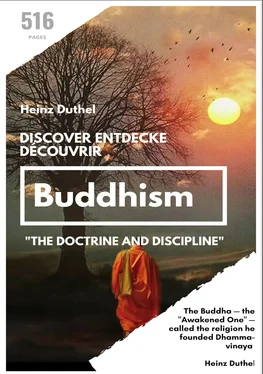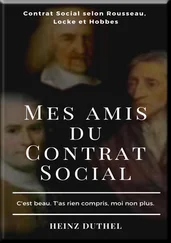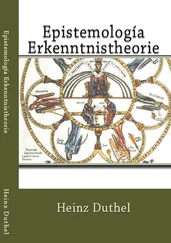Next, the Bodhisatta's six years of struggle shows us that the quest for the highest goal is a strenuous undertaking that calls for deep dedication and unrelenting effort. Fortunately for us, the Bodhisatta found that the practice of self-mortification is a fruitless exercise, and thus we need not follow him in this direction. But his uncompromising pursuit of truth underscores the degree of effort that the quest for enlightenment requires, and those who seek such a goal in full earnestness must be ready to submit to a difficult and demanding course of training.
The Buddha's enlightenment teaches us that ultimate wisdom and deliverance from suffering is a real potential inherent in human beings, one we can realize for ourselves without the aid or grace of an external savior. His enlightenment also highlights the ideal of sensible moderation, "the middle way," which has characterized Buddhism throughout its long history. The quest for truth may be a difficult undertaking, one which makes harsh demands on us, but it does not ask us to subject ourselves to penance and self-punishment. Final victory is to be won, not by tormenting the body, but by developing the mind, and this takes place through a course of training that balances care for the body with the cultivation of our higher spiritual faculties.
The decision the Buddha made after his enlightenment brings home another lesson to us. At this critical juncture, when he was faced with the choice of either keeping his enlightenment to himself or taking up the challenge of teaching others, the mandate of compassion prevailed in his heart. Leaving behind the quietude of the forest, he took upon himself the burden of guiding errant humanity along the path to liberation. This choice has had a tremendous impact on the subsequent development of Buddhism, for throughout its long history the spirit of compassion has been the heartbeat of the Buddha's dispensation, its innermost animating spirit. It was the Buddha's compassionate example that motivated Buddhist monks and nuns to travel across seas, mountains, and deserts, at the risk of their lives, to share the blessings of the Dhamma with those still lost in darkness. It is this example that inspires many Buddhists today, in a wide variety of ways, even when they can express their compassion only in humble acts of kindness and tender concern for those less fortunate than themselves.
Finally, the Buddha's passing away, his attainment of final Nibbana, teaches us once again that everything conditioned must perish, that all formations are impermanent, that even the greatest of spiritual masters is no exception to the very law he so often proclaimed. His passing away also teaches us that the highest bliss and peace comes only by relinquishing all, through the stilling of all conditioned things. For this is the final entrance way to the attainment of the unconditioned, the Deathless, Nibbana.
2. The Buddha's Mission
To ask why the Buddha's teaching proved so attractive and gained such a large following among all sectors of Northeast Indian society is to raise a question which is also relevant to us today. For we live at a time when Buddhism is exerting a strong appeal upon an increasing number of people, especially among those whose level of education and capacity for reflection has made them indifferent to the claims of revealed religion. I believe the remarkable success of Buddhism, as well as its contemporary appeal, can be understood principally in terms of two factors: one, the aim of the teaching; and the other, its methodological features.
(i) The Aim of the Teaching
Unlike the so-called revealed religions, which rest upon faith in unverifiable doctrines, the Buddha formulated his teaching in a way that directly addresses the critical problem at the heart of human existence — the problem of suffering — and he promises that those who follow his teaching to its end will realize here and now the highest happiness and peace. All other concerns apart from this, such as theological dogmas, metaphysical subtleties, rituals and rules of worship, the Buddha waves aside as irrelevant to the task at hand, the unraveling of the problem of suffering.
This pragmatic thrust of the Dhamma is clearly illustrated by an incident related in the texts. Once a monk named Malunkyaputta was pondering the great metaphysical questions — whether the world is eternal or non-eternal, infinite or finite, etc. — and he felt unhappy because the Buddha had refused to answer them. So one day Malunkyaputta went to the Master and told him, "Either you answer these questions for me or I leave the order."
The Buddha then told Malunkyaputta that the spiritual life did not depend on any answers to these questions, which were mere distractions from the real challenge of following the path. He then compared the metaphysician to a man struck by a poisoned arrow. When his relatives bring a surgeon, the man tells him, " I won't let you remove the arrow until you let me know the name of the man who struck me, the type of bow he used, the material from which the arrow was made, and the kind of poison he used." That man would die, the Buddha said, before the arrow was removed, and so too the metaphysician, struck with the arrow of suffering, will die without ever finding the path to freedom.
Not only does the Buddha make suffering and release from suffering the focus of his teaching, but he deals with the problem of suffering in a way that reveals an extraordinary degree of psychological insight. Like a psychoanalyst, the Buddha traces suffering to its roots within our minds, to our craving and clinging, and he holds that the cure, the solution to the problem of suffering, must also be achieved within our minds. To gain freedom from suffering it is futile to pray to the gods, to worship holy objects, to attach ourselves to rituals and ceremonies. Since suffering arises from our own mental defilements, we have to purify our minds of these defilements, from our greed, hatred, and ignorance, and this requires profound inner honesty.
While other religions lead us outward — towards ideas of a deity who determines our fate, or to lofty philosophical abstractions like the idea of a universal self or a nondual reality in which all opposites are resolved — the Buddha leads us back to ourselves, always keeping his teaching attuned to the hard facts of experience. He places the mind at the forefront of his analysis and says that it is the mind which fashions our actions, the mind which shapes our destiny, the mind which leads us towards misery or happiness. The beginning point of the teaching is the ordinary mind, in bondage and subject to suffering; the end point is the enlightened mind, completely purified and liberated from suffering. The whole teaching unfolds between these two points, taking the most direct route.
(ii) Characteristic Features of the Teaching
1. Self-reliance. This discussion of the aim of the Buddha's teaching leads us to the teaching's characteristic features. One of its most attractive features, closely related to its psychological orientation, is its emphasis on self-reliance. For the Buddha, the key to liberation is mental purity and correct understanding, and for this reason he rejects the notion that we can gain salvation by leaning on any external authority. He says: "By oneself is evil done, by oneself is one defiled. By oneself is evil left undone, by oneself is one purified. Purity and defilement depend on oneself; no one can purify another" (Dhp 165).
This stress on human effort, on our capacity to liberate ourselves, is a distinctive feature of early Buddhism and offers a remarkable affirmation of the human potential. The Buddha does not claim any divine status for himself, nor does he assert that he is an agent of human salvation. He claims to be, not a personal savior, but a guide and teacher: "You yourselves must strive, the Buddha only points the way. Those who meditate and practice the path are freed from the bonds of death" (Dhp 276). Throughout his ministry he urged his disciples to "be islands to yourselves, be refuges to yourselves, without looking to any external refuge." Even on his deathbed he gave his followers this last piece of advice: "All conditioned things are subject to decay. Attain the goal by diligence."
Читать дальше












